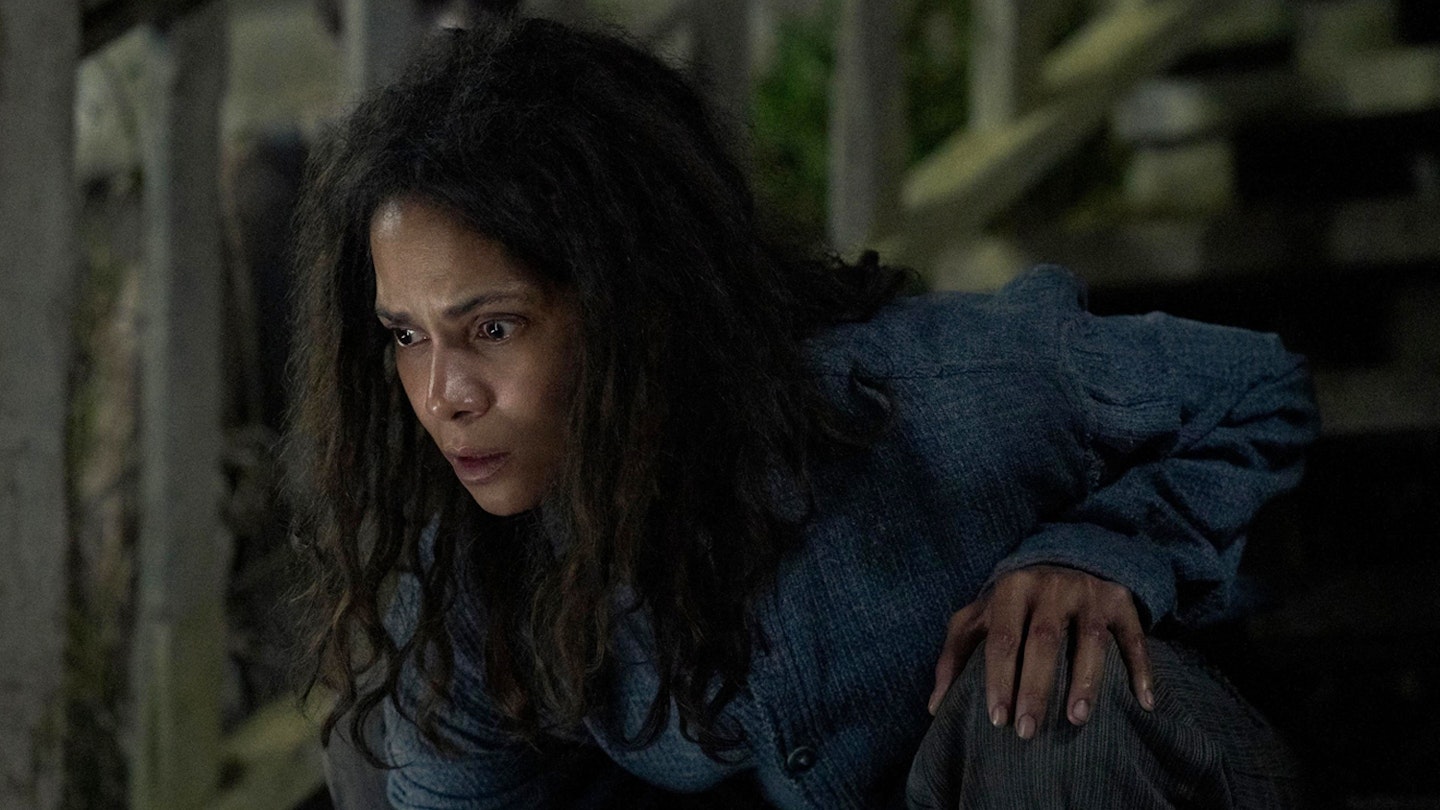The mental-health horror trend that’s been growing in recent years may be one of the most interesting, terrifying sub-genres around: if the real monsters are in your head, how can you protect your loved ones from them? The Babadook or Take Shelter mined such an idea for nearly unbearable tension; the latest from Alexandre Aja almost pulls off the same trick. Are we watching a tale of survival in a post-apocalyptic nightmare world, or two isolated children struggling with a mother they can’t trust?

Halle Berry plays Momma, a tough-as-nails survivor who’s holed up in a remote cabin in the woods with her twin sons Samuel (Anthony B. Jenkins) and Nolan (Percy Daggs IV). The boys nearly worship her, but her insistence that they must always remain physically tied with rope to their house is becoming restrictive as the boys get older, and her insistence on protective rhymes and rules seems eccentric. Their supplies are running low, animal prey is scarce among the gnarled trees of their scary woods, and Momma’s visions of the ‘Evil’ that haunts the house, seeking to infect them all if they let go of their ropes, are coming more and more often. Are the boys truly only safe at home? Or is the real danger inside with them?
It's a knotty situation, and Aja mines it for both jump scares and a particularly effective kind of creeping dread, made all the more horrible by the likeable family in his sights. Jenkins and Daggs give two of the best child performances of the year, but it’s Berry’s tightrope-tense fear that sells the premise. Unfortunately, as with many films that balance between interior and exterior terrors, this crumbles a bit in the final act when Aja feels compelled to decide which way his monsters should jump, leading to an ending that can’t quite satisfy. If he’d managed to stay on that knife edge, it might have been a mini-masterpiece. As it is, it feels a little samey.
